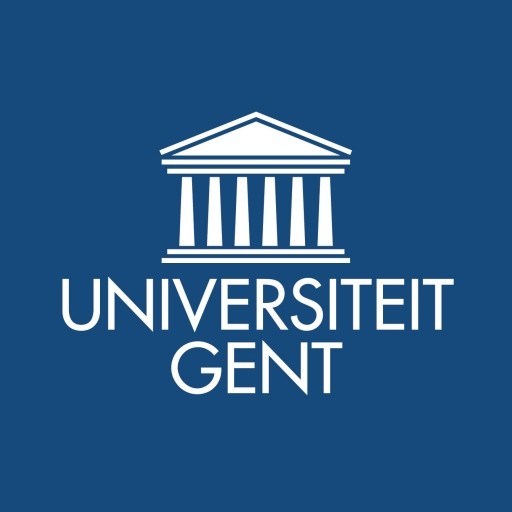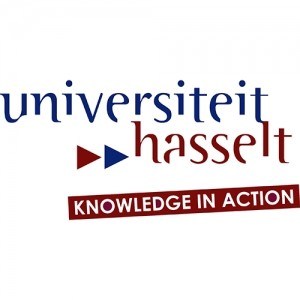Photos of university / #thefoundry_ugent
The Master of Laws (LL.M.) in International and European Law at Ghent University offers students an in-depth understanding of the legal frameworks governing international relations, European integration, human rights, and global governance. This programme is designed for students who aim to develop comprehensive legal expertise in the context of complex international and European legal issues. Throughout the programme, students explore various legal disciplines, including international trade law, environmental law, international arbitration, human rights law, and EU law, providing a multidisciplinary perspective crucial for legal practitioners operating in an increasingly interconnected world.
The curriculum combines rigorous theoretical coursework with practical skills development, enabling students to analyze, interpret, and apply legal principles within international and European contexts. During their studies, students engage with renowned faculty members, participate in seminars, workshops, and moot courts, and may have opportunities for internships with international organizations, law firms, or governmental agencies. The programme also emphasizes critical thinking, research excellence, and effective legal communication, preparing graduates for careers in international courts, European institutions, NGOs, or private practice specializing in transnational law.
Ghent University’s vibrant academic environment fosters collaboration and intercultural exchange, offering a multicultural learning setting that enhances students’ understanding of diverse legal traditions and practices. The LL.M. in International and European Law is suitable for students with a background in law or related disciplines who aspire to work on issues such as international human rights, European legislation, or global legal cooperation. Graduates will leave the programme equipped with advanced legal knowledge, practical competencies, and a global perspective to excel in international legal practice or further academic pursuits.
General Courses
- Seminar: Foreign Chair (3 Credits)
- Skills for Lawyers (3 Credits)
- Master Dissertation (15 Credits)
Elective Courses(39 credits)
- European Law: The Basics (3 Credits)
- International and European Environmental Law (6 Credits)
- Advanced Human Rights (6 Credits)
- European Criminal Policy (6 Credits)
- Advanced EU Competition Law (6 Credits)
- Advanced EU External Relations Law (6 Credits)
- Advanced EU Institutional Law (6 Credits)
- Advanced EU Internal Market Law (6 Credits)
- The Autonomous EU Legal Order (6 Credits)
- Air and Space Law (4 Credits)
- Transport Law (4 Credits)
- Contemporary Issues in EU Law - "Federalism in the European Union and in the United States of America" (3 Credits)
- Contemporary Issues in International Business Law: Intellectual Property Law (3 Credits)
- Peaceful Settlement of Disputes in International Law (4 Credits)
- EU Enlargement and Proximity Relations (4 Credits)
- EU External Relations: Selected Topics (4 Credits)
- EU Justice and Home Affairs (4 Credits) - Course will not be given in AY 2015-2016
- European Banking and Capital Market Law (4 Credits)
- European Company Law and Corporate Governance (4 Credits)
- Constitutional Aspects of EU Integration (4 Credits)
- European Contract Law (4 Credits)
- EU Labour Law (4 Credits)
- European Media Law (4 Credits)
- EU Social Law and International Employment (4 Credits)
- EU Trade Policy (4 Credits)
- International Commercial Arbitration (4 Credits)
- International Business Transactions (4 Credits)
- International Economic Law (4 Credits)
- International and European Biodiversity Law (4 Credits)
- Law of the Sea (4 Credits)
- Laws of Armed Conflict (4 Credits)
- Maritime Transport Law (4 Credits)
- Selected Issues: Organised Crime (4 Credits)
- EU Mergers and Acquisitions (4 Credits)
- Transport Insurance Law (4 Credits)
- European Private Law (ius commune) (4 Credits)
- Moot Court: International Commercial Arbitration (12 Credits)
- Moot Court: Public International Law (12 Credits)
Requirements
- To have a law degree, i.e. the degree that in its country of origin makes one eligible to exercise the legal professions. Students in their final year of undergraduate studies may apply and may be conditionally admitted, subject to the successful completion of their degree.
- Exceptionally, after an examination of their curricula and in view of their acquired competences, candidates who do not have a law degree may also be admitted. In such an event, the admission may be made subject to limitations with respect to the courses to be followed.
- To present proof of sufficient English proficiency (Applicable only to all non-native English speakers. We require a minimum score of 560 for paper TOEFL, 95 for Internet based TOEFL or 6.5 for IELTS, or C1 score for ITACE (for Belgian applicants). However, there is a possibility to obtain an exemption for prospective candidates who have completed a study course of minimum one year (equal to 60 ECTS credits) at an English-speaking higher education institution (upon presentation of a respective document proving completion of such a programme).
- To have sufficient financial support, as indicated in the application form, either through personal financial means or via financial aid. Please note that the tuition fee for the LLM programmes is 5000 Euro.
- CV
- Motivation letter
- Transcript of records
- Enrollment fee of Ghent University for academic year 2016-2017 is 890 € for EER-students and students from OESO-DAC-list (developing countries), all other students pay an enrollment fee of 5330 €
The financing of the International and European Law master's program at Ghent University is primarily supported through a combination of institutional funding, government subsidies, and student contributions. As a Flemish university, Ghent University benefits from regional and national educational budgets that help subsidize the costs associated with delivering high-quality legal education, including faculty salaries, library resources, and technological infrastructure. Dutch-speaking students are eligible for Flemish government grants and student loan schemes, which substantially reduce the financial barrier to enrollment. International students, on the other hand, are often required to pay tuition fees, which vary depending on their nationality and residence status. European Union students benefit from fee structures comparable to those of domestic students, whereas non-EU students may face higher tuition costs.
Furthermore, Ghent University offers a range of scholarship programs aimed at both Belgian and international students, including merit-based scholarships and fee waivers, which help to offset the overall costs of attendance. Many students finance their studies through part-time employment opportunities provided by the university itself or through external sources. Erasmus+ programs and exchange agreements available at Ghent University facilitate funding for students participating in international mobility, offering financial support for students pursuing part of their degree abroad. Additionally, some students may be eligible for private or public student loans, depending on their home country’s financial aid policies.
The university also encourages students to seek external funding from national and international organizations dedicated to supporting legal studies or postgraduate education. Alumni and external donors occasionally contribute to scholarship funds, which are used to support outstanding students or those demonstrating financial need. Overall, the financial structure surrounding the International and European Law program is designed to diversify funding sources to ensure a broad accessibility for students from different backgrounds and financial circumstances. The university’s transparent fee policies and extensive support services aim to provide clarity and assistance related to financing options throughout the duration of the program.
International and European Law at Ghent University offers students a comprehensive understanding of the legal frameworks governing Belgium, the European Union, and the wider international community. The programme is designed for students interested in pursuing careers in diplomacy, international organizations, NGOs, or legal practice related to international or European law. Throughout the course, students explore key legal concepts, principles, and institutions that shape international relations and European integration. The curriculum typically covers topics such as EU law, human rights law, international trade law, international criminal law, and environmental law, offering both theoretical knowledge and practical skills. Additionally, students have opportunities for internships, participation in moot courts, and exchange programmes, providing real-world experience and multicultural perspectives. The programme aims to develop critical thinking, legal research skills, and an understanding of complex international legal issues. Graduates are well-prepared to work in governmental and non-governmental organizations, legal consultancy firms, or continue their studies at the master's or doctoral level. The teaching staff includes experienced professors and practitioners from the legal field, ensuring that students receive high-quality education rooted in current legal practices and developments. Ghent University is recognized for its strong research output and international outlook, making it an ideal place to study law with a focus on European and international contexts. The programme emphasizes multilingual proficiency and intercultural competence, key skills in the global legal arena. Overall, the International and European Law programme at Ghent University combines academic excellence, practical relevance, and a stimulating international environment to prepare students for diverse professional paths in the legal domain.



